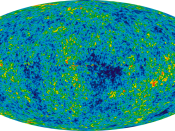-Allow 30 minutes for answering this question
During the 21st century, multidisiplinary studies are emerging in the field of astronomy. It is rapidly becoming the major sector responsible for breakthroughs meant for the various scientific communities as a whole. Prominent researches such Isaac Newton, Albert Newton, Galileo Galilee, Nicolas Copernicus and Stephen Hawking have developed theories and scientific models that have revolutionized the entire complex perspective of science.
New instruments are continually replacing the conventional ones for the sake of making the long, arduous process of space exploration more quick and accurate. For instance larger and larger reflecting telescopes have been built. Early studies with these instruments showed, in the 1920s, that the entire Milky Way system, containing hundreds of billions of stars, is just one galaxy among many millions of similar "islands in space". In the second half of the 20th century, developments in physics led to new kinds of astronomical instruments, some of which have been placed on unmanned Earth-orbiting satellite observatories.
These instruments are sensitive to a wide range of wavelengths of electromagnetic radiation, including the gamma-ray, X-ray, ultraviolet, infrared, and radio regions of the spectrum. Astronomers now study not only planets, stars, and galaxies but also interstellar clouds that are the birthplaces of new stars, cold dust grains that are invisible in the optical regions, dim failed stars called brown dwarfs, quasars, which are energetic nuclei of galaxies that almost certainly contain black holes, and background radiation originating from the big bang that is beginning to yield information about the origin of the universe.
The development of astronomy primarily began with the questions - "What do we know about the black space that is existent beyond the Earth's atmosphere? Has it been created by God?" to these type of questions - "What do we know about...



Comment
this is my first comment , so ill just say what i feel i guess...i felt like this essay stayed on topic pretty much then whole time , and was of very good qualtiy
3 out of 3 people found this comment useful.